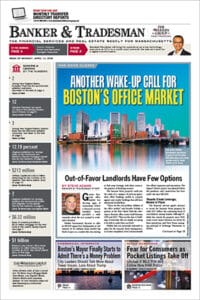
Bill Cummings
Some of the most buzz-worthy companies – WeWork, Lyft, Uber and Peleton – have faced a reckoning of sorts this year. Delayed IPOs or drops in valuation have left investors, not to mention employees, in doubt about the future. When investors buy into a mere vision – or a company with greater debts than profit – is it time to revisit a more old-fashioned business model?
Since the birth of the internet, so many entrepreneurs have made untold fortunes by selling newly formed businesses to eager buyers with bags full of cash. Most of these sellers had good ideas that easily scaled upward and developed great flows of highly treasured monthly user fees. And many have sought infusion of capital from outside investors in order to grow fast.
But there is something to be said for running your business for the long haul and following basic business principles as fundamental as watching your expenses. Or when taking a gamble, make sure you can afford to lose everything, without impacting your employees.
Too Many Think of Exit Strategy First
Often it seems that today’s entrepreneurs are thinking about their exit strategy before they even begin their new ventures. Over the past year or so, I have participated in at least a dozen college business classes and have heard almost nothing about the far more “conventional” business model.
In earlier decades, most businesses were organized, like Cummings Properties, as family businesses that later generations were, of course, expected to take over someday. Wal-mart is a great example.
Early business leaders, like Sam Walton and Warren Buffett, have wonderful lessons to share. Buffett, for example, dabbled in entrepreneurship as a youth and graduated college with close to $10,000 from his childhood businesses.
Likewise, from the time I was 7 or 8 years old I was working far more than I was playing, and only because I enjoyed the work. And I always thought of my simple ice cream sales route, and my business washing storefront windows, or buying and selling used boats as businesses, not as jobs.
This really old-fashioned business we run in Woburn does a total of close to $200 million dollars annually in construction and leasing volume.
Now, as a seasoned entrepreneur, I realize running a business means more than earning profit. It is also a responsibility – to the community you serve and the people you employ. Over 50 years, my north-of-Boston commercial real estate business grew in size, in terms of both leasing revenue and staff. In almost no time we had 100 full-time colleagues, then 200, then 300 and now 400 terrific associates.
For me, it has been immensely rewarding to create jobs and to continue to innovate and evolve to remain a company where colleagues want to stay. Quite unusual in this age of job–hopping, Cummings Properties’ current employees have average longevity of more than 10 years.
Be Mindful of Employees – It Pays Off
Being mindful of these hundreds of employees who rely on us for their livelihood, succession planning has been critical, but also highly gratifying. Recent leadership shakeups at high–profile companies have been unsettling for employees and investors alike.
Close to half of WeWork’s white-collar employees expect to be laid off, according to a recent survey by Recode. In our case, times of uncertainty can be an opportunity. With a debt-free portfolio of buildings, periods of recession have been a time to keep our staff at work with new projects such as renovations and even new buildings to make more space available when the economy rebounds.
Finally, we believe in being good neighbors, which is why we choose to give back locally with the focus of our giving in three Massachusetts counties.
This really old–fashioned business we run in Woburn does a total of close to $200 million dollars annually in construction and leasing volume. Along the way my wife, Joyce, and I have been able to contribute greatly to Cummings Foundation, also of Woburn, which today has assets greater than $2 billion.
Joyce and I were certainly pretty wealthy when, eight years ago, we became the first Massachusetts residents to join the Giving Pledge, founded by Bill and Melinda Gates along with Buffett. We soon realized we were probably the poorest among these many business leaders who committed to giving more than half of their wealth away to charity, but we knew we were in great company.
Bill Cummings is the founder of Woburn-based Cummings Properties and Cummings Foundation, and the author of the recently published business book, “Starting Small and Making it Big.”





